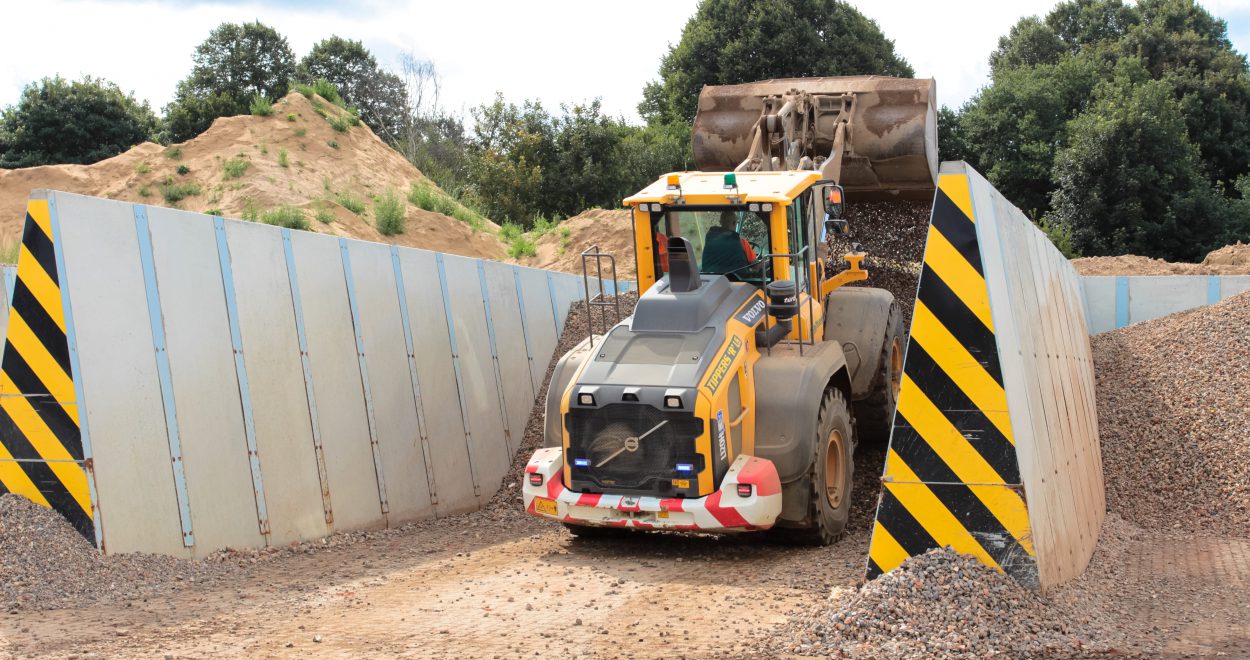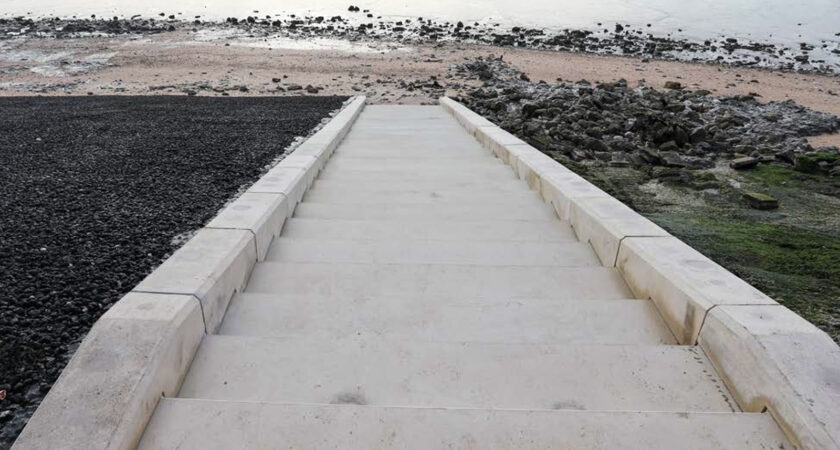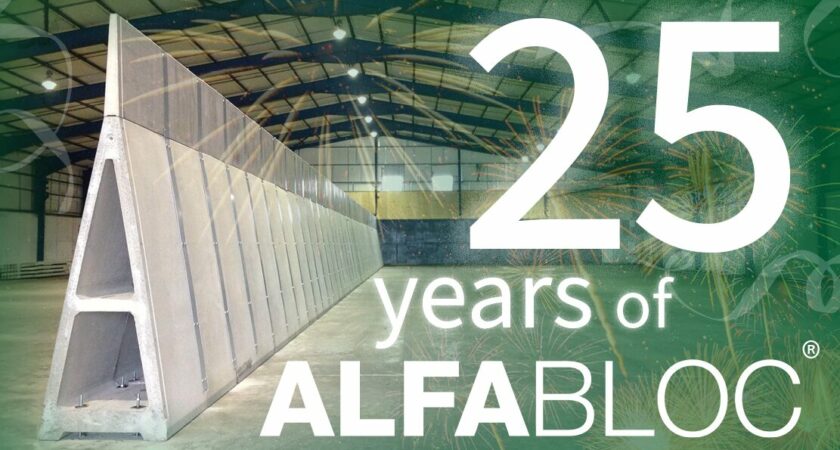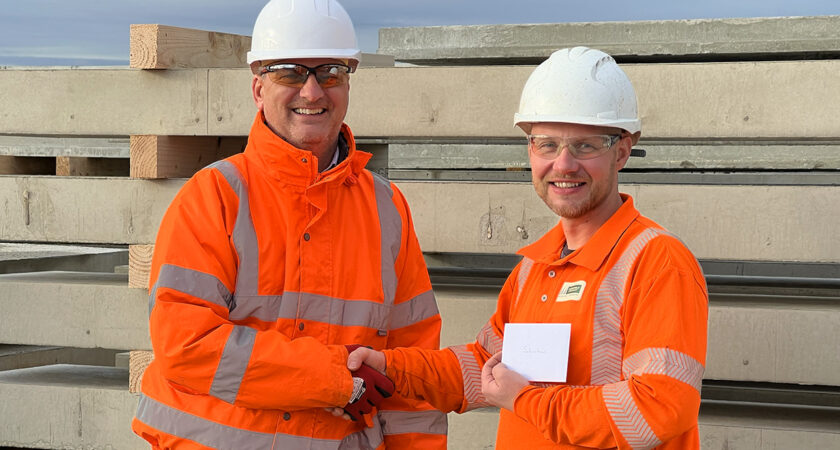Two years on and our Alfablocs are still going strong!
Posted on: September 14th 2017 • Posted in: Alfabloc, Case studies, Retaining Walls
Two years on and our Alfablocs are still going strong!
Back in 2015, we supplied and installed 260 of our 3.05m high Alfablocs to the Suffolk based recycling company Tippers ‘R’ Us. Two years on and they’ve stood up well to the thousands of tonnes of aggregates which have been handled on the site.
With the capacity to produce up to 1,400 tonnes of sand and stone products per day, being able to store construction and demolition waste and segregate their high quality recycled aggregates were priorities for the Kesgrave based firm. In addition to the initial 260 retaining wall units, we delivered a further 217 blocs to the site in 2016, along with 16 of the 1.22m versions to create sand bays alongside their large wash plant.
Used for the storage of recycled materials, including crushed concrete, crushed hardcore and screened topsoil, these walls are still going strong today. Having had to withstand two years of hard use of storing concrete, hardcore and aggregates, the Alfablocs have also shown their flexibility, having been reconfigured multiple times to maximise space as the business has expanded.
Freestanding and easily lifted without the need for chains or shackles, the Alfabloc’s versatility is what sets it apart from similar products on the market, and what prompted Tippers ‘R’ Us to choose Poundfield Precast.
As our pictures show, the blocs continue to perform well, storing and separating heavy aggregates on a daily basis.
Yard manager Gary Norman, said “the Alfablocs are vital to our operation here. We process and store a large amount of recycled material, so having a solution that is able to handle the daily volumes of materials we produce is essential. By the very nature of our products the Alfablocs need to stand up to some really heavy use and they haven’t disappointed at all”
Matt Moss, Poundfield’s Commercial Director, commented “It’s pleasing to see how our Alfablocs have stood up to the significant day-to-day usage of storing thousands of tonnes of aggregates at the Tippers ‘R’ Us site. They have withstood the continued stresses and impact of very heavy materials and mechanical plant, and we’re delighted to see they’re still performing as well today, as when they were first installed.”




